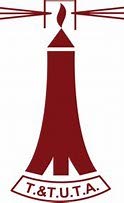Building professional capital of schools

RENOWNED educational researchers Michael Fullan and Andrew Hargreaves in 2012 floated the concept of professional capital being fundamental to the quest to transform and improve schools. In observing that the prevailing approach to teaching and schooling is still based on a business/value-added model, where education is treated as a commodity and its purpose essentially being the creation of workers and consumers, they recognised that this approach is antithetical to the modern concept of education and that if schools are to improve, this capital concept must be reoriented and revamped.
They noted some of the inherent dangers of this schooling model being the simplification of the task of the teacher as a sub-professional which demands minimal investment, does not require rigorous pre- and ongoing specialised training and that teaching can be driven by data and ultimately that technology can replace teachers.
The global attempts by big technology and education service corporations to privatise education and either replace teachers or minimise their role through artificial intelligence, remote learning and standardised tests are well documented. The covid19 pandemic has given them further opportunity to press their case to the point where some feel that physical schools are no longer needed or their role severely diminished.
The professional capital approach to teaching has now become more critical, given the current emphasis on remote learning. Suddenly teachers were forced to retool, reorient their thinking, engage in professional collaboration and re-engineer their approach to pedagogy, infusing the use of information and communication technology; in short, significantly enhancing their professional competence in quick time.
Fullan and Hargreaves advance the notion that professional capital is the confluence of human, decisional and social capital, synergising to enhance the capacity of the school to achieve its objectives. The quality of a school is thus a reflection of the quantum of professional capital that can be expressed in form and function.
Human capital essentially reflects what teachers know and can do as individuals and is the outcome of their specialised training and professional development. Social capital, on the other hand, refers to what teachers bring collectively from their community connections which encompasses cultural practices, and that which shapes their social being, such as norms and values and what they can do together. Decisional capital refers to the wisdom, knowledge and expertise of the teacher to make sound judgments about learners over a period of time.
The challenge of school leadership, especially in the current pandemic circumstance, is to leverage these three forms of capital to create a professional capital culture that will enable teachers to be sufficiently committed to self-regulation, be self-directed life-long learners, engage in reflective practice and build and maintain professional learning communities in and out of their schools.
This is no easy task and requires purpose and action by school leaders, even under normal conditions. It is firstly built on the philosophy of recognising the teacher as a true professional, with professional competence-building being viewed as a continuum. It’s about enhancing their decision-making capacity and empowering them via an enabling environment to work together.
Developing professional capital must be the main pillar of a school’s professional development thrust and forms the foundation of school improvement. Good teaching is a constantly changing dynamic requiring sound judgment, the exercise of discretion, analysis and evaluation – skills that are honed over a prolonged period of time and enhanced through introspection, reflection and collaboration.
Specialised intellectual training (human capital) is a start, the conviction to make a difference (social capital) a driving force and the capacity to carry out one’s mandate (decisional capital) all come together to create the professional capital of the school; an entity that can be enhanced with purposeful leadership.
There is no doubt that the management of teachers functioning in a remote and autonomous setting has been anything but challenging, requiring many principals to rely on the professional integrity, personal dedication and commitment of the teacher. By far, our teachers have risen to the challenge in a remarkable manner, given the professional capital with which they began just over a year ago.
However, given the accepted understanding that education post-pandemic will certainly be a greater blend of face-to-face and remote instruction, school leaders must re-envision their schools from a paradigm of professional capital enhancement in the pursuit of principles of democracy, social justice and cohesion, equity, prosperity and sustainable development. Principals cannot be distracted by mundane duties and false accountability notions of data collection from their larger leadership mandate: to inspire a school community.


Comments
"Building professional capital of schools"